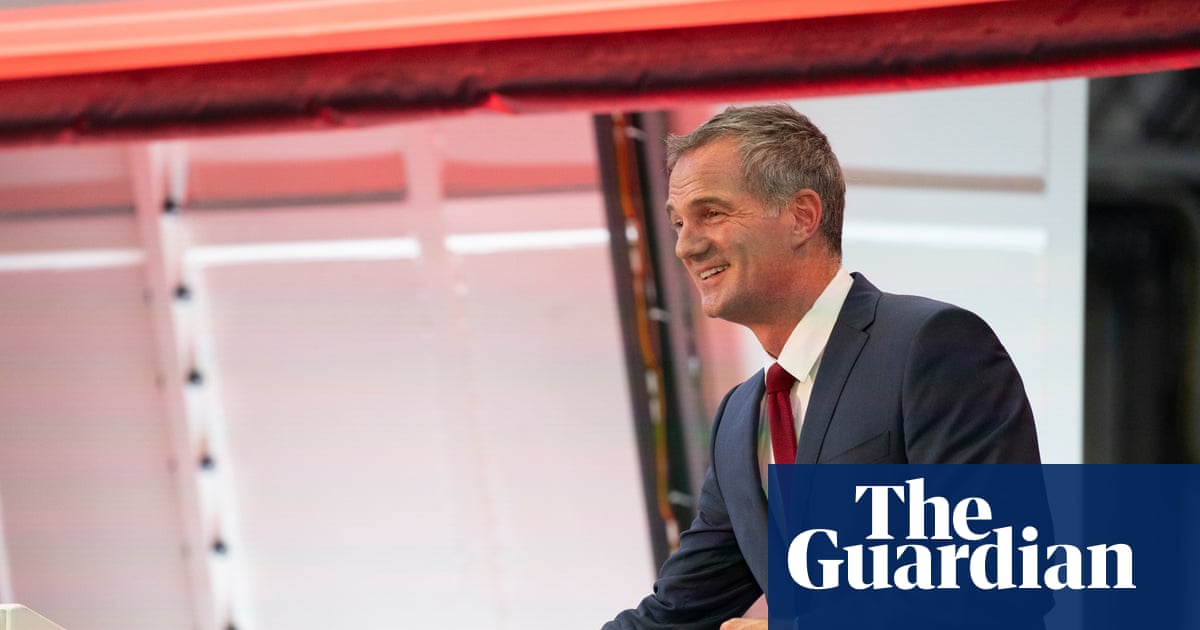
Staff at the UK’s leading artificial intelligence institute have raised concerns about the organisation’s governance and internal culture in a whistleblowing complaint to the charity watchdog.
The Alan Turing Institute (ATI), a registered charity with substantial state funding, is under government pressure to overhaul its strategic focus and leadership after an intervention last month from the technology secretary, Peter Kyle.
In a complaint to the Charity Commission, a group of current ATI staff raise eight points of concern and say the institute is in danger of collapse due to government threats over its funding.
The complaint alleges that the board of trustees, chaired by the former Amazon UK boss Doug Gurr, has failed to fulfil core legal duties such as providing strategic direction and ensuring accountability, with staff alleging a letter of no confidence was delivered last year and not acted upon.
A spokesperson for ATI said the Charity Commission had not been in touch with the institute about any complaints that may have been sent to the organisation. They added that a whistleblower complaint had been filed last year to the government’s UK Research and Innovation body, which funds ATI, and a subsequent independent investigation found no concerns.
The complaint comes after ATI, which is undergoing a restructuring, notified about 50 staff – or approximately 10% of its workforce – that they were at risk of redundancy.
It claims ATI’s funding is at risk, citing “privately raised concerns” from unnamed industry partners, while warning that Kyle has made clear that future government support is contingent on improved delivery and leadership change.
In a letter to Gurr this month, Kyle called for a switch in focus to defence and national security at ATI, as well as leadership changes. While the letter stated ATI should “continue to receive the funding needed to implement reforms”, it said its “longer-term funding arrangement” could be reviewed next year.
The complaint claims there has been no internal or external accountability for how ATI funds have been used. It alleges there is an internal culture of “fear, exclusion, and defensiveness”.
It also alleges the board has not provided adequate oversight of a series of senior leadership departures under the chief executive, Jean Innes, nor of senior leadership appointments, and that ATI’s credibility with “staff, funders, partners, and the wider public has been significantly undermined”, as shown by the letter of no confidence and Kyle’s intervention.
The Guardian has also learned that ATI is shutting projects related to online safety, tackling the housing crisis and reducing health inequality as part of its restructuring, which is resulting in the closure or mothballing of multiple strands of research.
The restructuring has triggered internal upheaval at ATI, with more than 90 staff sending a letter to the board last year warning that cost cuts were putting the organisation’s reputation at risk.
after newsletter promotion
Among the projects slated for closure are work on developing AI systems to detect online harms, producing AI tools that can help policymakers tackle issues such as inequality and affordability in the housing market and measuring the impact in health inequality of major policy decisions like lockdowns.
Other projects expected to close include an AI-based analysis of how the government and media interact. A project looking at social bias in AI outcomes will also be dropped. Projects being paused include a study into how AI might affect human rights and democracy, as well as research into creating a global approach to AI ethics.
A spokesperson for ATI said: “We’re shaping a new phase for the Turing, and this requires substantial organisational change to ensure we deliver on the promise and unique role of the UK’s national institute for data science and AI. As we move forward, we’re focused on delivering real-world impact across society’s biggest challenges, including responding to the national need to double down on our work in defence, national security and sovereign capabilities.”
A Charity Commission spokesperson said the organisation could not confirm or deny whether it had received a complaint, in order to protect the identity of any whistleblowers.








